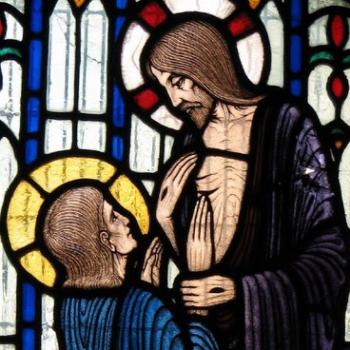July 17, 2007, on this blog: Origins of the God Gap
The southern-ness of much of American evangelicalism is clearly a factor in Sullivan’s “God gap.” This is a geographical reality and also a theological one. Evangelicalism’s otherworldly focus is a theological adaptation that arose to accommodate the awkwardly indefensible situation of white Christians “owning” Christian slaves. The largest single bloc of American evangelicals, the Southern Baptist Convention, was created in 1845 in defense of the principle that missionaries be allowed to own slaves. The history of many other evangelical institutions is rooted in a more recent expression of that same racism — as in the explosive growth of private Christian schools following Brown v. Board of Education.
The partisan identity of these southern evangelical voters, in other words, has little to do with “faith friendliness” or with faith at all. If the Democratic Party adopted an anti-gay, anti-abortion platform and selected T.D. Jakes as its “faith-friendly” nominee, it still would not be able to overcome the partisan gap among certain southern strands of white evangelicalism.
















